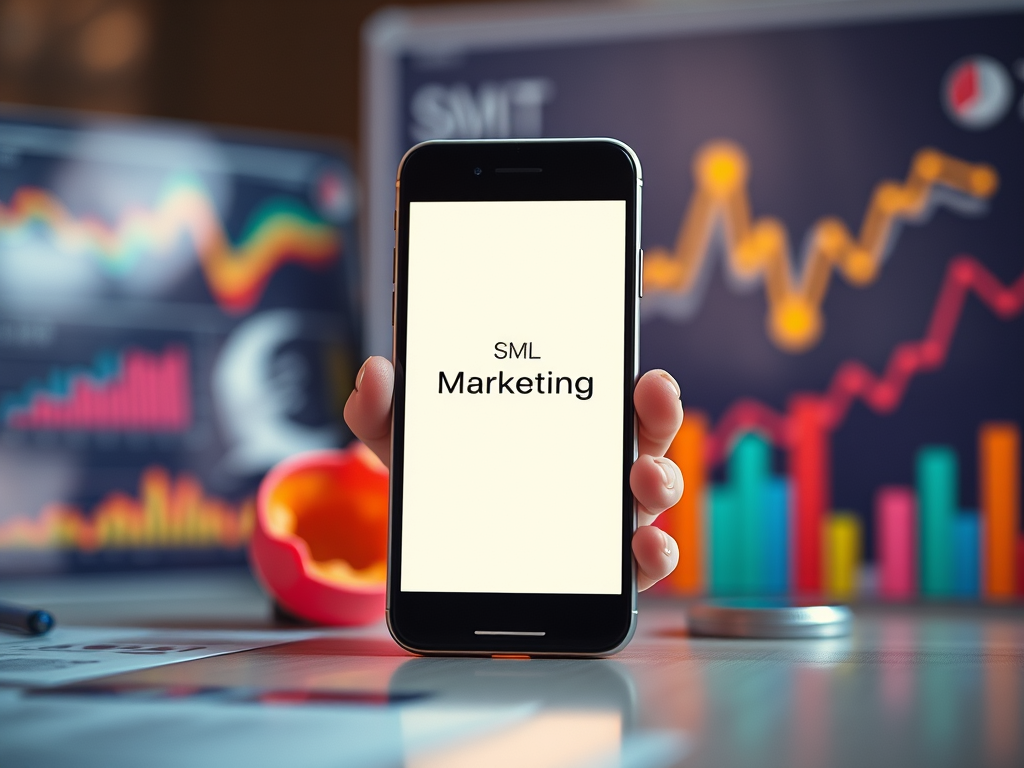In today’s digitally driven world, mobile marketing has emerged as one of the most effective ways for businesses to reach their target audience. With billions of smartphone users globally, this form of marketing leverages the widespread use of mobile devices to engage potential customers through personalized campaigns, mobile apps, SMS marketing, mobile websites, and more. To craft a successful mobile marketing strategy, businesses need to understand how mobile marketing works, the various types of mobile marketing strategies available, and the platforms that support them.
In this article, we will explore key mobile marketing strategies, examine how mobile marketing works, and provide insights into some of the top platforms for implementing these campaigns. We will also highlight how mobile marketing can help new businesses and products reach their audiences and provide examples of successful mobile marketing campaigns.
Key Mobile Marketing Strategies
There are numerous strategies that businesses can adopt when engaging in mobile marketing. Here’s a list of the most common approaches:
- Mobile-Optimized Websites
Ensuring that your website is mobile-friendly is the foundation of any successful mobile marketing strategy. A responsive design that adjusts to various screen sizes and offers a seamless user experience is crucial for keeping mobile users engaged. - SMS Marketing (Text Messaging)
SMS marketing is a direct form of communication that allows businesses to send promotions, reminders, or updates to their customers. It has a high open rate and can be effective for real-time marketing. - Mobile Apps
Custom mobile apps allow businesses to offer a more personalized experience to users. Apps provide a direct channel for communication, push notifications, loyalty programs, and mobile commerce. - In-App Advertising
Businesses can advertise within mobile apps through banner ads, video ads, or interactive content. These ads are typically targeted based on user preferences and behaviors. - Mobile Push Notifications
Push notifications offer a way for businesses to engage with users through timely updates, promotions, and reminders directly on their mobile devices, even when they’re not using the app. - Location-Based Marketing (Geofencing)
Geofencing allows businesses to target users based on their physical location. When customers enter a certain geographic area, they can receive personalized ads or promotions, such as a discount at a nearby store. - Mobile Search Marketing
Optimizing your content for mobile search engines is essential for improving visibility on mobile devices. This includes mobile-specific SEO strategies, local search optimization, and Google Ads campaigns designed for mobile users. - QR Codes
QR (Quick Response) codes allow users to scan and access information, websites, or promotions quickly. These codes can be printed on flyers, posters, or packaging to provide an easy link to digital content. - Social Media Mobile Marketing
With social media usage primarily happening on mobile devices, it’s essential for businesses to tailor their social media marketing campaigns specifically for mobile users. This includes optimizing posts, ads, and video content for mobile viewing. - Mobile Commerce (M-Commerce)
M-commerce refers to transactions made through mobile devices. Businesses that offer an easy-to-navigate mobile shopping experience through apps or mobile websites see higher conversion rates and sales.

How Does Mobile Marketing Work?
Mobile marketing uses various digital strategies to reach customers through mobile devices. These strategies can be deployed across different platforms and can range from app-based marketing to SMS campaigns and location-based services.
Here’s a breakdown of how some of these strategies function:
- SMS Marketing involves sending targeted text messages directly to a customer’s mobile device. For instance, a retail store may send an exclusive discount code via SMS to customers who have opted in for updates.
- Push Notifications are sent through mobile apps to inform users about special offers, new content, or updates. These are highly effective for re-engaging inactive users or promoting time-sensitive offers.
- In-App Ads leverage user data to display relevant ads while the user is engaged in a mobile app. These ads often promote other apps or products related to the user’s interests or previous behavior.
- Geofencing allows businesses to set a virtual perimeter around a location. When users enter this location, they receive location-based notifications or ads. For example, a coffee shop might send an offer to users when they pass by the shop.
- Mobile Search Marketing focuses on ensuring that a company’s website or ad appears when users search for relevant keywords on mobile search engines like Google or Bing.
Each of these strategies taps into the unique capabilities of mobile devices, such as portability, location tracking, and instant communication, to create highly targeted marketing campaigns.
Top Mobile Marketing Platforms
To successfully implement a mobile marketing strategy, businesses need to use the right platforms. Here are some of the leading mobile marketing platforms:
- Google Ads (Mobile Search and Display Ads)
Google Ads offers a variety of mobile ad formats, including search ads, display ads, and video ads that are optimized for mobile devices. Businesses can target specific mobile users based on their behavior, location, and search queries. - Facebook and Instagram Ads
As two of the largest social media platforms, Facebook and Instagram are heavily mobile-focused. Their ad tools allow businesses to create targeted mobile marketing campaigns based on demographics, interests, and behavior. - MoEngage
MoEngage is a customer engagement platform that focuses on mobile marketing automation. It helps businesses send personalized push notifications, in-app messages, and SMS marketing campaigns. - Airship
Formerly known as Urban Airship, this platform specializes in mobile push notifications and in-app messaging. It offers advanced targeting and analytics to help businesses optimize their mobile marketing efforts. - HubSpot
HubSpot’s CRM offers a range of mobile marketing tools, including email marketing templates optimized for mobile, social media management, and lead tracking. - Braze
Braze is a comprehensive customer engagement platform that focuses on mobile experiences. It enables businesses to send personalized push notifications, email, SMS, and in-app messaging campaigns. - Leanplum
Leanplum helps businesses optimize mobile apps by offering A/B testing, real-time analytics, and mobile push notifications. It’s ideal for businesses that rely on apps as a core part of their mobile marketing strategy. - AdMob by Google
AdMob allows businesses to monetize mobile apps with ads. It supports various ad formats, including video, banner, and native ads, and offers insights into app performance.

Mobile Marketing Campaign Examples
Some businesses have successfully leveraged mobile marketing strategies to grow their customer base and increase sales. Here are a few notable examples:
- Starbucks Mobile App
Starbucks uses its mobile app to drive engagement through a rewards program. Users can order ahead, earn points for each purchase, and receive personalized offers via push notifications. - Nike+ Run Club
Nike’s app provides users with a personalized running experience, including challenges, tracking, and rewards for completing goals. It integrates seamlessly with mobile devices and social media, making it a powerful tool for community-building and marketing. - Coca-Cola’s SMS Marketing Campaign
Coca-Cola ran an SMS marketing campaign where customers could text in codes found on bottle caps to win prizes. This simple mobile marketing strategy helped drive engagement and increase sales.
The Future of Mobile Marketing
Mobile marketing is an essential part of any modern marketing strategy. With the proliferation of smartphones and the increasing amount of time consumers spend on mobile devices, businesses that focus on mobile marketing are better positioned to engage their target audience, increase brand loyalty, and boost sales.
Understanding how mobile marketing works and using a mix of strategies—from SMS marketing and mobile apps to location-based services and mobile commerce—can help businesses craft personalized experiences that resonate with customers.
By leveraging the right platforms and continually optimizing campaigns based on data and user feedback, businesses can ensure that their mobile marketing strategies remain effective in a rapidly evolving digital landscape.

Leave a Reply